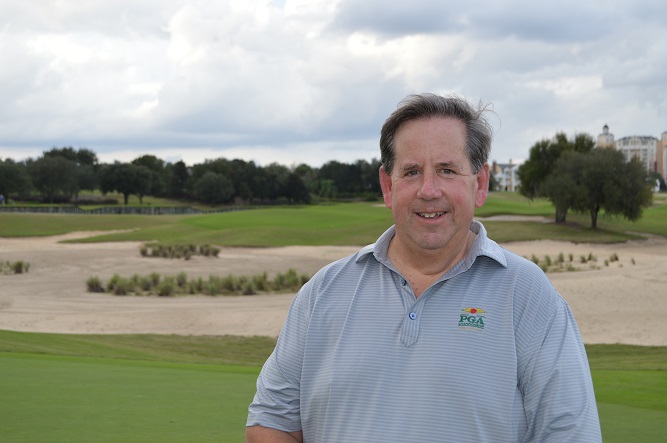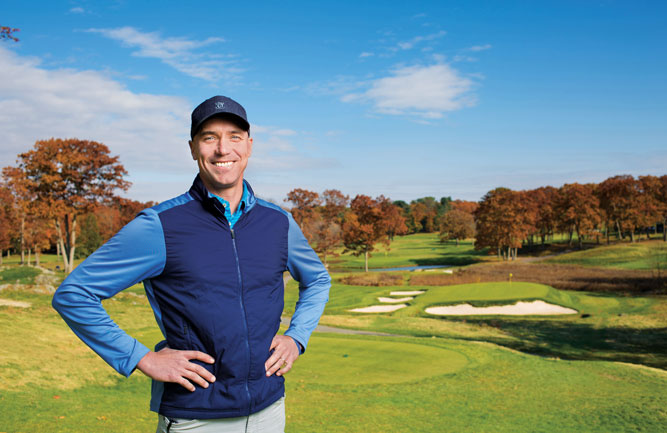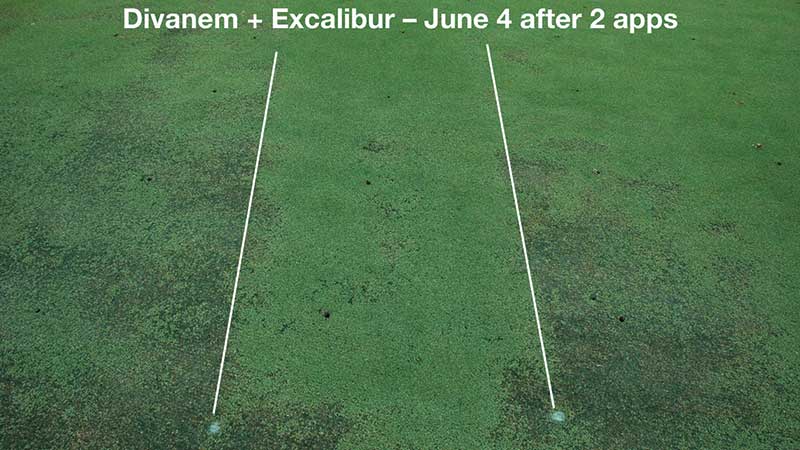3 retired supers review their careers
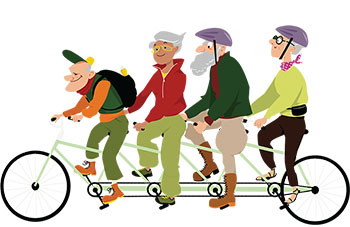
Photo: Aleutie/istock-getty images plus/getty images
When the word “retirement” gets thrown around, some may fantasize about sleeping in, sitting around on the couch and eating bonbons.
Not so for Mark Kuhns, CGCS-Retired, John Hoofnagle, CGCS-Retired, and Chris Gaughan, CGCS-Retired — all of whom finished a 40-plus-year run in the turfgrass industry and retired within the past year and a half, from Baltusrol Golf Club, Eugene Country Club and Bookcliff Country Club, respectively. Collectively, they’ve overseen extensive course renovations and played host to major tournaments.
It probably comes as no surprise then that a few months into retirement, their vacationing and relaxation regimens didn’t quite seem to cut it. All three men decided to delve into their next venture.
“You just need to have a mission on a daily basis when you’re retired, and also something to do,” Hoofnagle says.
Kuhns agrees.
“The first week you’re retired, it’s like you’re lost. You wake up at 4:30 in the morning, and you think you should be going somewhere, and you miss all the great things you were doing on a daily basis: seeing your staff and your crew, and even the goose dogs — you become attached to them.”
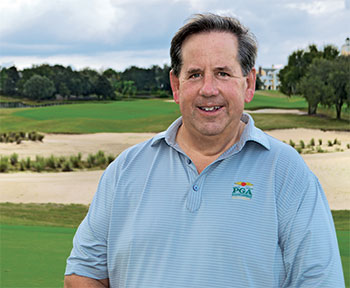
Retirement has opened up Mark Kuhns’ schedule quite a bit, allowing him to travel and take on other activities. (Photo: Pete Seltzer)
Kuhns now serves as vice president of business development for Turco Golf, a heavy construction company based in Pompton Lakes, N.J., and handles a consulting business on the side.
“Turco Golf has been wonderful to me,” Kuhns says. “I go out in the field and develop business for (the company). I can work my own schedule, and I enjoy being out in the industry and sharing my experience with others … and my wife and I still get to do all the wonderful things we want to do in this world.”
Hoofnagle more than doubled the client base of his consulting business, and he mows grass at a course a mile from his house for about 25 hours a week during the summer months.
“It’s been a good year, a busy year, but a good balance,”
Hoofnagle says. “I’m the kind of person who needs to be doing something … Besides all that (work) stuff, I’ve still had some time do to more of the fun stuff. We did a little more traveling and skiing last winter, a little more hiking. And I’ve actually played more golf than I’ve played in a long time.”
Gaughan took a completely different route — literally — and now works for about 25-35 hours a week as a driver for Lyft, Uber and the University of Oregon’s athletic department.
“It’s been fun as heck because you meet all kinds of people. I didn’t do it for the money, just for the entertainment value. You just put on the app when you get bored and you go on a new adventure,” Gaughan chuckles, adding that he jots down the really good stories in a notebook, just in case he ever comes out with a book.
Know when to go
For Kuhns, retirement was spurred by Baltusrol’s undertaking of a multimillion-dollar course renovation slated to take five to seven years. For Gaughan, it had a lot to do with the revolving door of labor when it came to crew members. And for Hoofnagle, it was his realization that at age 66, his finances had fallen into place and it just seemed like the right time.
At some point, all three men just knew it was time to get going and were satisfied with their decisions, although Gaughan says if he had it to do over, he would give his club the six months of notice that his contract required instead of the 18 months of notice that he gave.
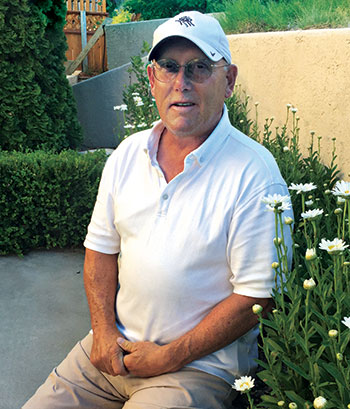
John Hoofnagle says he’s played more golf than ever now that he’s retired. (Photo courtesy of John Hoofnagle)
“One of the things that I’ve always taught interns is how to get to that point in their career (where) they can make their own choice and retire with dignity,” Kuhns says.
Words from the wise
Kuhns, Hoofnagle and Gaughan all advise superintendents on the brink of retirement to make sure their financial ducks are in a row. (And for those who may not be near retirement, Kuhns says it’s never too early to start putting money aside, whether it’s in a 401(k), IRA or other retirement account.)
“At first it seems a little daunting, but it really isn’t that difficult to put that stuff together,” Hoofnagle admits. “Make the right financial decisions, and of course, make sure you have your health care covered.”
It’s also important to acknowledge that things may feel different for a time. For example, Gaughan says he sometimes finds it difficult to return to Eugene Country Club, where he’d been for 43 years, despite the club granting him a membership.
“I’m just going to stay away for a couple years and then get settled in,” he says. “I think that’s the case when anyone takes the place of someone who had been there as long as I had.”
Hoofnagle also concedes that stepping away from a head role can be challenging.
“I miss that you’re at the controls as far as growing grass and seeing your programs and practices evolve,” Hoofnagle says. “(But) I think more than anything, I miss the interaction with the guys on the crew, guys I worked with a number of years. It’s not even so much on the professional side, but the personal relationship you build with them.”
Overall though, retirement should be about seeking out hobbies and activities that bring enjoyment — even if that means a second career path, like it did for Kuhns, Hoofnagle and Gaughan.
“You’re going to have your ups and downs,” Kuhns says. “There’s going to be depressing moments in your careers and even in retirement, but always try to be positive, look up and see where it takes you. If you’re negative in life, you’re going to be negative in retirement. I think you just have to look at the things you want to do and enjoy.”
A tribute to turf
Longtime friend of the magazine Joe “Strib” Stribley, CGCS, reflects on the industry following his retirement after a 38-year career.
Thirty-eight years ago, I did not know there were universities that offered turfgrass degrees, much less consider career opportunities in turf management. That changed when Don Tolson, whom I had worked for as a night irrigator alongside Clark Throssell, suggested I work for him at Yellowstone CC in Billings, Mont. Don had a turf intern from Michigan State (Golfdom Managing Editor Clara McHugh’s dad, Paul), and meeting him led me in the same direction five months later on a course (excuse the pun) I have been on for 38 years: turfgrass.
I did not know how lucky I was to have gotten into the business when golf was about to have a great run of 25-plus years of growth.
I did not know the real challenge would be in employees, not turfgrass. The workforce is changing, and as I passed McDonald’s today with a hiring sign offering $12 an hour to start, I am harshly reminded. I believe that will change some, especially if increases are seen in wages for assistants.
I did not know we would take the turf and playing conditions to such a level. Mowing greens below an eighth and having consistent expectations in a hazard says it all.
I did not know the passing of metal spikes would be such an improvement. I will never forget, after the first day of a state competition where metal spikes weren’t allowed, it looked as if no one had played.
I did not know that mowers would one day cost as much as I paid for my first house. Some of the improvements are great, but do we need computers on rough mowers as long as we still have operators on them? All this adds significantly to the cost of a round of golf and its sustainability. I should be careful, though, as technology may replace my retirement job: rough mower.
I did not know we would fertilize the turf and then turn around and suppress growth. All this technology requires superintendents to pay more attention and interpret what is happening. Mother Nature has a way of jerking our chain as to who really has the final say.
I did not know there would be so many experts at our facilities.
I did not know a golf professional and superintendent working at the exact same facility could be on different pages, and sometimes chapters. Communication is the key to this relationship, and we need each other to keep things running smoothly.
I did not know that the guy I partnered with night irrigating would become Dr. Clark Throssell at Purdue. He has become a longtime friend, fishing partner, turf confidant and my hero for dating the same gal for 20-some years.
I did not know 38 years would go by so fast. It is a great profession, and I am curious how the next 38 years will evolve. If you did the calibration, my tank will be empty, and the parts will be obsolete.









